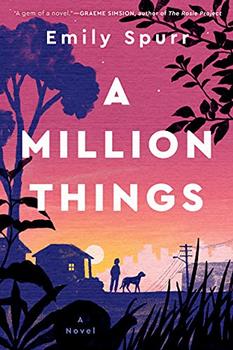Summary | Excerpt | Reviews | Beyond the book | Read-Alikes | Genres & Themes | Author Bio

A singular, blistering novel about a teenage girl who has lost everything - and will burn anything.
Lucia's father is dead; her mother is in a mental institute; she's living in a garage-turned-bedroom with her aunt. And now she's been kicked out of school - again. Making her way through the world with only a book, a zippo lighter, a pocket full of stolen licorice, a biting wit, and striking intelligence she tries to hide, she spends her days riding the bus to visit her mother and following the only rule that makes any sense to her: Don't do things you aren't proud of. But when she discovers that her new school has a secret Arson Club, she's willing to do anything to be a part of it, and her life is suddenly lit up. And as her fascination with the Arson Club grows, her story becomes one of misguided friendship and, ultimately, destruction.
In essence, How To Set A Fire is a character study. The journal format allows for little development of the supporting cast. Lucia is not without friends, but they are barely sketched in. The plot is minimal so the extent to which you like this book will be determined by how willingly you buy into the cult of Lucia. The fact that this book isn't sadder is a credit to Jesse Ball's skill and light touch, the narrative never descends into hopelessness, even when it feels like it should...continued
Full Review
 (628 words)
(628 words)
(Reviewed by Lisa Butts).
In How to Set a Fire and Why, Lucia claims to not remember exactly what occurred during an argument with her aunt's landlord, leaving her exact reasoning and motivation somewhat mysterious. In writing Lucia as an unreliable narrator, Jesse Ball draws from an established tradition.
 An unreliable narrator lies, expresses uncertainty or bias, or seems to have a misunderstanding of situations that occurred. The author may employ an unreliable narrator to intentionally mislead the reader or as a means of characterization. Part of the pleasure in encountering such a narrator is parsing out what is true and what is not. Teen and young adult narrators are some of the most obvious and well-known examples of the trope, and this makes logical sense...
An unreliable narrator lies, expresses uncertainty or bias, or seems to have a misunderstanding of situations that occurred. The author may employ an unreliable narrator to intentionally mislead the reader or as a means of characterization. Part of the pleasure in encountering such a narrator is parsing out what is true and what is not. Teen and young adult narrators are some of the most obvious and well-known examples of the trope, and this makes logical sense...

If you liked How to Set a Fire and Why, try these:

by Emily Spurr
Published 2021
Winner of the 2021 BookBrowse Debut Award
A soaring, heartfelt debut following fifty-five days in the life of ten-year-old Rae, who must look after herself and her dog when her mother disappears.

by Dana Czapnik
Published 2019
Told in vibrant, quicksilver prose, The Falconer is a coming-of-age story, providing a snapshot of the city and America through the eyes of the children of the baby boomers grappling with privilege and the fading of radical hopes.
Read the best books first, or you may not have a chance to read them at all.
Click Here to find out who said this, as well as discovering other famous literary quotes!